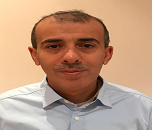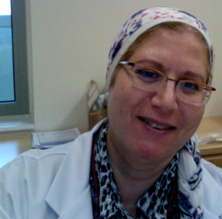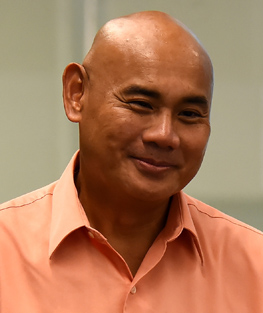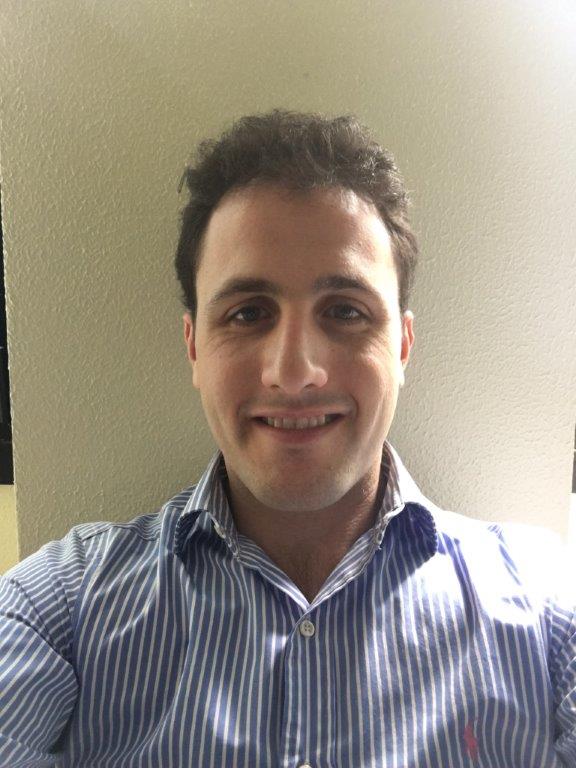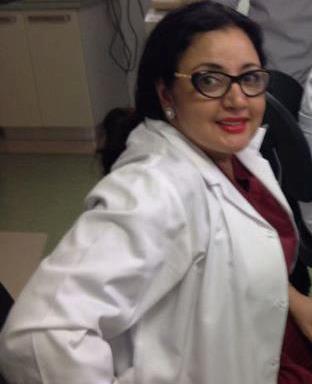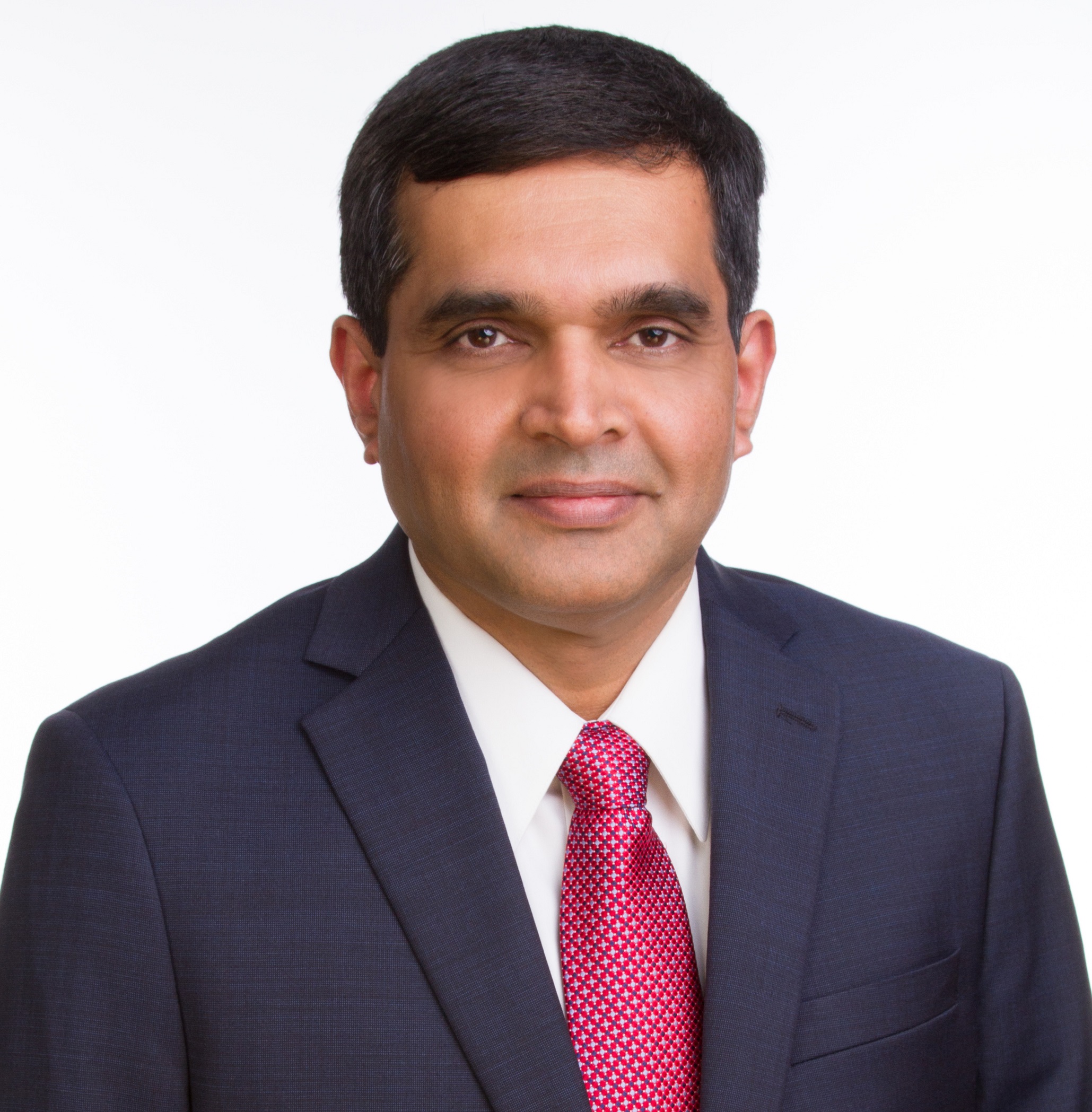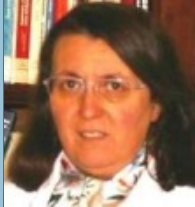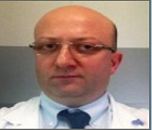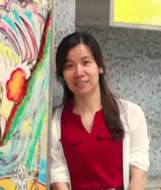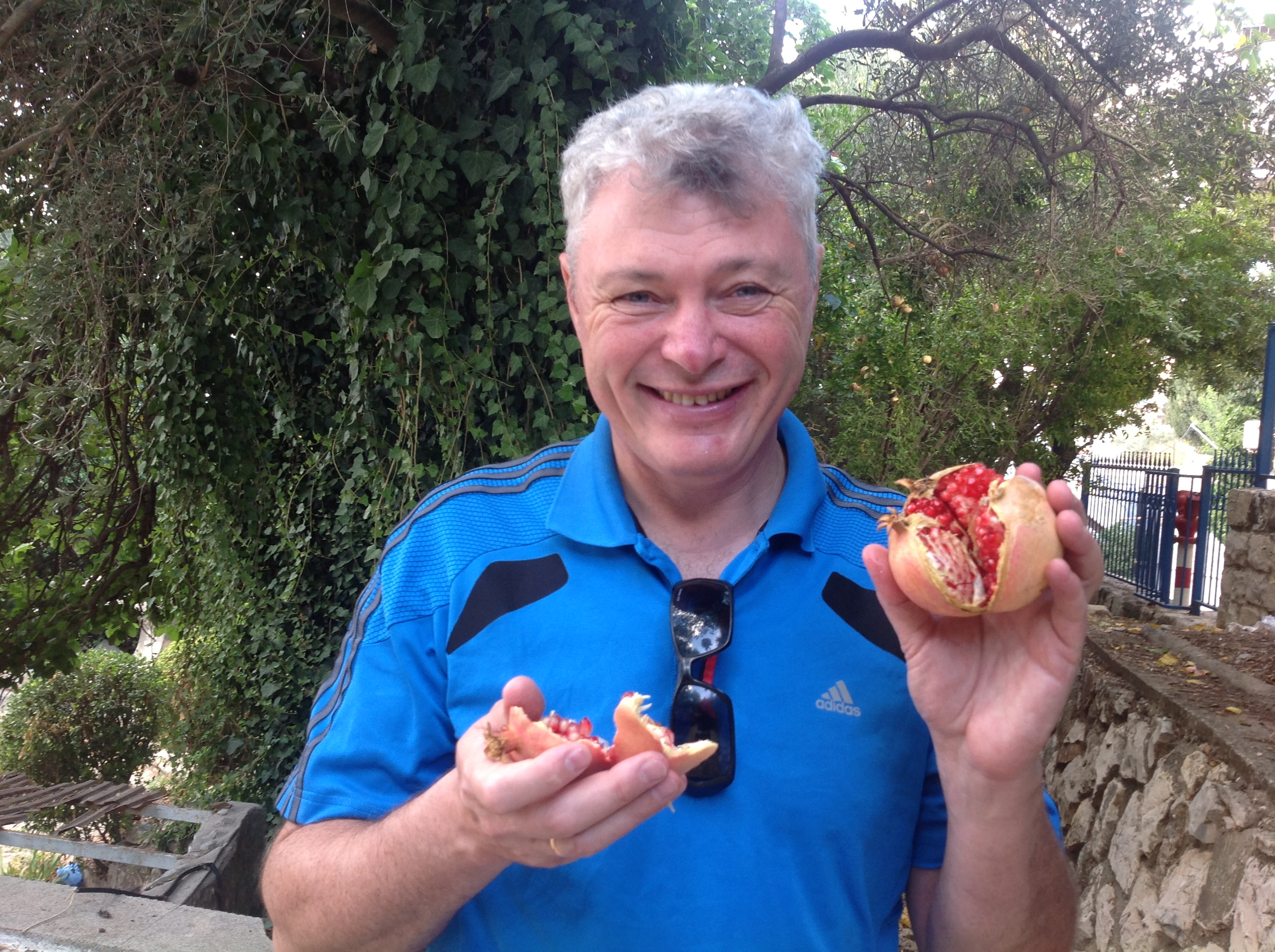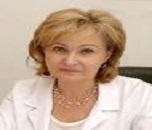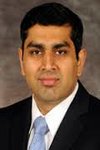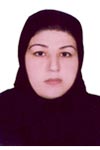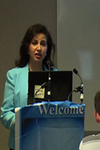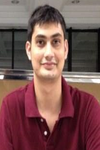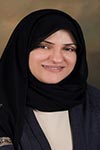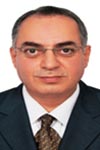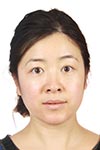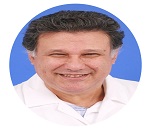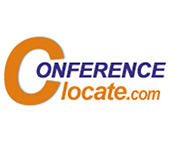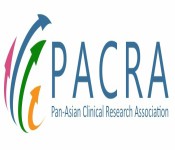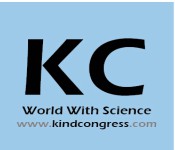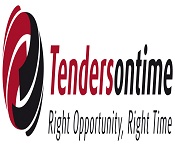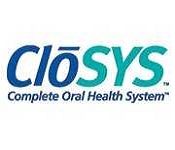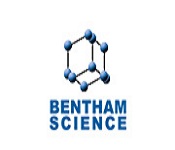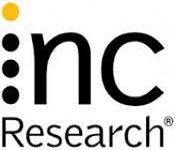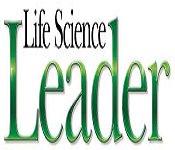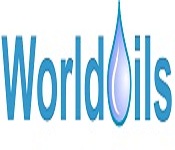Theme: Explore the Recent advancements in Rare Diseases Research
Rare Diseases Congress- 2019
We are happy to announce this, with the success of previous Rare Diseases Congress series, we are delighted to invite all the participants over the globe to attend “9th World Congress on Rare Diseases and Orphan Drugs”, will be held during June 17-18, 2019 at Berlin, Germany which includes prompt Keynote Presentations, Special Sessions, Workshops, Symposiums, Oral talks, Poster Presentations and Exhibitions in the field of Rare Diseases and Orphan Drugs.
Rare Diseases refer to those medical aberrations which affect a very least number of the population. They are characterized by a wide diversity of disorders and symptoms that differs not only from disease to disease but also from individual to individual patient suffering from the same disease. About 80% of these disorders have predictable genetic origins while the others are the result of infections, allergies, neurological related and environmental causes. A medicinal product developed for the treatment of a Rare Disease is an Orphan Drug. Under regular market environments the pharmaceutical industry has little attention in evolving and marketing products of Orphan Drugs proposed for only a small number of patients.
The conference conquers implication when we look at the worldwide deaths due to Rare Diseases. The majority of around 800 million people with other Rare Diseases, including 100,000 children born with thalassaemia annually receive no treatment. There are major ethical quandaries in dealing with global health issues such as the treatment of Orphan and Rare Diseases.
Target Audience:
Pathologists
Infectious Diseases Specialists
Pharmacists
Epidemiologists
Health Care Professionals
Microbiologists
Bacteriologists
Virologists
Parasitologists
Mycologists
Researcher Scholars
Training Institutes
Pharmaceutical Companies
Rare Diseases Associations
Orphan Drugs Companies
Students
Why to attend?
Rare Diseases and Orphan Drugs conference signifies serious uncommon/ unrelated complications that have diverse impacts on people, public health, and economies. These diseases are responsible for rising healthcare costs, lost productivity, and long-term disability. This conference will feature a global audience of scientific leaders, academia and health care professionals, and Orphan Drugs experts who are going to discuss today’s emerging treatments and diagnostics. By bringing together the Rare Diseases community, presenting the latest developments, and identifying unmet treatment needs, Rare Diseases Congress-2019 hopes to accelerate research and drug development in Rare Diseases, improving patient outcomes. It is designed to provide an educational forum that stimulates clinical, research, government and patient communities to create a coordinated and comprehensive approach for advancing the implementation of research, clinical care, care delivery coordination and other public health interventions critical to improved outcomes in Rare Diseases and Orphan Drugs research.
For Scientific Sessions please go through the link:
https://rarediseases.insightconferences.com/scientific-program
For Abstract Submission please go through the link:
https://rarediseases.insightconferences.com/abstract-submission.php
For Topics please go through the link:
https://rarediseases.insightconferences.com/call-for-abstracts.php
Track 1: Rare Diseases in Neurology
Neurological disorders are the diseases associated with the spine, brain and the nerves that connect them. It affects the body nervous system. Reflex Sympathetic Dystrophy Syndrome, Aicardi-Goutieres syndrome, Acarida syndrome are few rare neurological disorders to specify. The central nervous system affected by Rare Neurological Disorders usually develops in infancy and is inherited in an autosomal recessive manner. There are various kinds of symptoms which are categorized in three main stages that provide a general basis for diagnosing individuals with LS. The symptoms of the stage I are characterised as stunted growth, vomiting, and diarrhoea. Symptoms exhibited in stage II are example such as optic atrophy, uncoordinated movement, dystonia, hypotonia, and peripheral neuropathy. The symptoms of stage III are dysarthria, acute muscle and dysphagia, atrophy is common, with death being the outcome. It is necessary to study the physiological defects of brain and muscle structures in LS for proper diagnosis and treatment.
Recommend Conferences:
Infectious Diseases Conferences | Infection Conferences | Epidemiology Conferences | Public Health Conferences | Health care Conferences | Orphan Drugs Conference | Inherited Rare Diseases Conferences | Immune Deficiency Conferences | Pathogenesis Conferences
Related Societies and Associations:
Europe: European Union Committee of Experts on Rare Diseases; European Organisation for Rare Diseases; Genetic and Rare Diseases Information Centre (GARD); European Academy of Neurology
USA:
National Organization for Rare Disorders; Rare Disease Foundation; Rare Diseases International; Emirates Rare Diseases Association; The Every Life Foundation for Rare Diseases
Asia Pacific:
The Asia-Pacific Alliance of Rare Disease Organisations; International Rare Diseases Research Consortium; Rare Diseases Society Singapore; Organization for Rare diseases India; Rare Voices Australia
Track 2: Rare Mental and Behavioral Disorders
Abnormality is also called as dysfunctional behavior which refers to the behavioral characteristic assigned to those with conditions regarded as rare or dysfunctional. A Behavior is considered to be abnormal when it is atypical or out of the normal or usual,it consists of unpleasant behavior, and results in deterioration in the individual's functioning. Abnormality is one, which is considered as different from specific ethical social and cultural expectations. These expectations are broadly dependent on age, gender, traditional and societal categorizations. The definition of abnormal behavior is an often debated issue in abnormal psychology because of these subjective variables.
Recommend Conferences:
Infectious Diseases Conferences | Infection Conferences | Epidemiology Conferences | Public Health Conferences | Health care Conferences | Orphan Drugs Conference | Inherited Rare Diseases Conferences | Immune Deficiency Conferences | Pathogenesis Conferences
Related Societies and Associations:
Europe:
European Organisation for Rare Diseases; European Academy of Neurology; British Society of Parasitology; European Society of Clinical Microbiology and Infectious Diseases; Genetic and Rare Diseases Information Centre (GARD)
USA:
Rare Disease Foundation; Texas Society of Infection Prevention and Control; International AIDS Society; Infectious Diseases Society of America; Canadian Society for Immunology
Asia Pacific:
International Rare Diseases Research Consortium; Rare Diseases Society Singapore; Organization for Rare diseases India; Rare Voices Australia; Australasian Society for Infectious Diseases
Track 3: Rare Pediatric Diseases
The majority of rare diseases affect children, most of whom have an underlying genetic cause for their condition. However, making a molecular diagnosis with current technologies and knowledge is often still a challenge. Pediatric genomics is rapidly evolving field but it is not well developed, that tackles this problem by incorporating next-generation sequencing technologies, especially whole-exome sequencing and whole-genome sequencing, into research and clinical workflows. This difficult multidisciplinary approach, combined with the ascending availability of population genetic data variation, has already resulted in an increased discovery rate of causative genes and in improved diagnosis of rare pediatric disease. Substantially, for affected individual family members, a good and thorough understanding of the genetic basis of rare disease translates to more perfect prognosis, management, surveillance and genetic advice; stimulates research into new therapies; and enables provision of better support.
Recommend Conferences:
Infectious Diseases Conferences | Infection Conferences | Epidemiology Conferences | Public Health Conferences | Health care Conferences | Orphan Drugs Conference | Inherited Rare Diseases Conferences | Immune Deficiency Conferences | Pathogenesis Conferences
Related Societies and Associations:
Europe:
European Organisation for Rare Diseases; Infection Prevention Society; Healthcare Infection Society; British Society of Parasitology; Surgical Infection Society
USA:
Rare Diseases International; Emirates Rare Diseases Association; The EveryLife Foundation for Rare Diseases; The Ryan Foundation; Texas Society of Infection Prevention and Control
Asia Pacific:
International Rare Diseases Research Consortium; Rare Diseases Society Singapore; Organization for Rare diseases India; Rare Voices Australia; Australasian Society for Infectious Diseases
Track 4: Immunological Rare Diseases
The immune system is delegated to defend the body from attacks from outside or inside. Many diseases can affect immune system reducing its ability to defend self or inducing an abnormal response against external or internal antigens. Rare diseases affecting immune system present some issue in common with other rare diseases and some peculiarities due to the huge variability in the disease's expression. However, a correct estimation of the epidemiology of rare disorders is necessary for evaluating the prognosis and the responses to new therapies, for planning proper public health services, and finally to establish fair and sustainable prices for innovative medicines. The immune system is delegated to defend the body from attacks from outside or inside. Many diseases can affect immune system reducing its ability to defend self or inducing an abnormal response against external or internal antigens.
Recommend Conferences:
Infectious Diseases Conferences | Infection Conferences | Epidemiology Conferences | Public Health Conferences | Health care Conferences | Orphan Drugs Conference | Inherited Rare Diseases Conferences | Immune Deficiency Conferences | Pathogenesis Conferences
Related Societies and Associations:
USA:
The Every Life Foundation for Rare Diseases; The Ryan Foundation; Texas Society of Infection Prevention and Control; International AIDS Society; Infectious Diseases Society of America
Asia Pacific:
Organization for Rare diseases India; Rare Voices Australia; Australasian Society for Infectious Diseases; Chinese Society for Immunology; Asia Pacific Society of Infection Control
Track 5: Rare Diseases in Nephrology
Many rare diseases affect the kidneys and the urinary system, some limited to the urinary system itself (eg, membranous nephropathy), and some part of a condition (eg, Alport syndrome) that causes additional symptoms in other organ systems. With varying degrees of severity, these diseases can affect different parts of the urinary system (kidney glomerulus, kidney tubules, urinary tract, etc) causing numerous symptoms. Several of these diseases occur in the context of inflammation and autoimmune disease (eg, Goodpasture syndrome). Many rare types of vasculitis can also cause major kidney problems (eg, Henoch-Schönlein purpura nephritis). Disorders of kidney development, kidney metabolism, or substance transport within the kidney also exist. Some are directly heritable diseases caused by genetic defects (eg, cystinuria). Rare diseases can cause acute kidney damage (which may be repairable), but more often result in chronic kidney disease.
Recommend Conferences:
Infectious Diseases Conferences | Infection Conferences | Epidemiology Conferences | Public Health Conferences | Health care Conferences | Orphan Drugs Conference | Inherited Rare Diseases Conferences | Immune Deficiency Conferences | Pathogenesis Conferences
Related Societies and Associations:
Europe:
Genetic and Rare Diseases Information Centre (GARD); European Academy of Neurology; Orphanet; Infection Prevention Society; Healthcare Infection Society
USA:
The Ryan Foundation; Texas Society of Infection Prevention and Control; International AIDS Society; Infectious Diseases Society of America; Canadian Society for Immunology
Asia Pacific:
International Rare Diseases Research Consortium; Chinese Society for Immunology, Asia Pacific Society of Infection Control, Pediatric Infectious Disease Society of Thailand
Track 6: Rare Dermatological Disorders
Skin disorders differ significantly in indications and brutality. Rare skin diseases are mostly genetic. Genodermatoses are genetic skin disorders with cutaneous expression. The Genodermatoses & Rare Skin Diseases therapeutic centres targeted mainly genodermatoses with a high effect on quality of life of patients and of their families and leading to a huge social handicap. There are many rare skin diseases like Atopic dermatitis(categorized by chronic inflammation of the skin), Epidermolysis Bullosa (inherited disorders in which the skin and mucous crusts are very delicate that the lightest touch can cause very painful), Icthyosis (dry, thickened, scaling skin).
Recommend Conferences:
Infectious Diseases Conferences | Infection Conferences | Epidemiology Conferences | Public Health Conferences | Health care Conferences | Orphan Drugs Conference | Inherited Rare Diseases Conferences | Immune Deficiency Conferences | Pathogenesis Conferences
Related Societies and Associations:
Europe:
Orphanet; European Union Committee of Experts on Rare Diseases; European Organisation for Rare Diseases; Genetic and Rare Diseases Information Centre (GARD); European Academy of Neurology
USA:
Rare Diseases International; Emirates Rare Diseases Association; The EveryLife Foundation for Rare Diseases; The Ryan Foundation; Canadian Society for Immunology;
Asia Pacific:
Pediatric Infectious Disease Society of Thailand; The Asia-Pacific Alliance of Rare Disease Organisations; International Rare Diseases Research Consortium; Rare Diseases Society Singapore; Organization for Rare diseases India; Rare Voices Australia
Track 7: Rare Oncology
The many different types of rare oncological diseases include tumors of the body and hematological disorders of the blood. Although individually these malignancies are rare, as a group, they represent a significant majority of people with cancer.Certain characteristics of these malignancies differentiate them from more common types of cancer. Often, the cancer begins in a type of cell that only rarely becomes cancerous. This can happen in organs that are otherwise common sites of cancer growth. For example, although breast cancer is not a rare disease, angiosarcoma of the breast, which arises in the inner lining of blood vessels, is a rare cancer.
Recommend Conferences:
Infectious Diseases Conferences | Infection Conferences | Epidemiology Conferences | Public Health Conferences | Health care Conferences | Orphan Drugs Conference | Inherited Rare Diseases Conferences | Immune Deficiency Conferences | Pathogenesis Conferences
Related Societies and Associations:
Europe:
European Union Committee of Experts on Rare Diseases; European Organisation for Rare Diseases; Genetic and Rare Diseases Information Centre (GARD); European Academy of Neurology; Orphanet
USA:
Rare Disease Foundation; Rare Diseases International; Emirates Rare Diseases Association; The Every Life Foundation for Rare Diseases; The Ryan Foundation; Rare Disease Foundation
Asia Pacific:
Organization for Rare diseases India; Rare Voices AustraliaAustralasian Society for Infectious Diseases; Chinese Society for Immunology; Asia Pacific Society of Infection Control; Pediatric Infectious Disease Society of Thailand
Track 8: Rare Diseases of Lymphatic System
These diseases occur very rarely, consisting of fluid-filled channels they are non-malignant masses or spaces thought to be caused by the abnormal development of the lymphatic system. These formations are usually detectable at birth or after two years of age. Lymphatic malformations can affect any part of the body (except the brain), but they most commonly affect the head and neck. When recognized at birth that is congenital, lymphatic malformations tend to be soft, spongy, non-tender masses. The most common symptoms and lymphatic malformations severity differs depending upon the size and specific location of the malformation. Some lymphatic malformations can be massive or huge Lymphatic malformations can potentially cause functional impairment of nearby structures or organs and disfigurement of affected areas Irrespective of size.
Recommend Conferences:
Infectious Diseases Conferences | Infection Conferences | Epidemiology Conferences | Public Health Conferences | Health care Conferences | Orphan Drugs Conference | Inherited Rare Diseases Conferences | Immune Deficiency Conferences | Pathogenesis Conferences
Related Societies and Associations:
Europe:
European Academy of Neurology; Orphanet; Infection Prevention Society; Healthcare Infection Society; Surgical Infection Society
USA:
Rare Diseases International; Emirates Rare Diseases Association; The EveryLife Foundation for Rare Diseases; The Ryan Foundation; Canadian Society for Immunology
Asia Pacific:
Rare Diseases Society Singapore; Organization for Rare diseases India; Rare Voices Australia; The Asia-Pacific Alliance of Rare Disease Organisations; International Rare Diseases Research Consortium
Track 9: Rare Nutritional and Metabolic Diseases
Metabolism is the chemical process which our body uses to transform the food we eat into the form energy or fuel that keeps us alive and energetic too. When the metabolism processes fails a metabolic disorder causes and results in the body to have either too high or too little of the essential materials needed to stay healthy. Our body is very sensitive to mistakes or errors in metabolism. The body must have amino acids and many types of proteins to perform all of its metabolic functions. Calcium, potassium, and sodium ions are utilized by our brain to generate electrical impulses and to send signals, and also lipids and fatty acids to maintain a healthy nervous system.
Recommend Conferences:
Infectious Diseases Conferences | Infection Conferences | Epidemiology Conferences | Public Health Conferences | Health care Conferences | Orphan Drugs Conference | Inherited Rare Diseases Conferences | Immune Deficiency Conferences | Pathogenesis Conferences
Related Societies and Associations:
Europe:
European Union Committee of Experts on Rare Diseases; European Organisation for Rare Diseases; Genetic and Rare Diseases Information Centre (GARD); European Academy of Neurology; Orphanet
USA:
Rare Disease Foundation; Rare Diseases International; Emirates Rare Diseases Association; The Every Life Foundation for Rare Diseases; The Ryan Foundation; Rare Disease Foundation
Asia Pacific:
Organization for Rare diseases India; Rare Voices AustraliaAustralasian Society for Infectious Diseases,Chinese Society for Immunology, Asia Pacific Society of Infection Control, Pediatric Infectious Disease Society of Thailand
Track 10: Rare Gynaecological and Obstetrical Diseases
Gestational Diseases (GTD) may be defined as bunch of rare diseases that develop within the womb throughout an abnormal physiological condition. It happens once when abnormal cells or tumours grow inside the tissues that are square measure shaped following conception that may unremarkably surround the embryo and transform the placenta. Redness is caused by Acute venereal disease which might result in the Fitz-Hugh-Curtis syndrome (perihepatitis that causes higher right quadrant pain). Infection may become chronic, which are characterised by intermittent exacerbations and remissions.
Recommend Conferences:
Infectious Diseases Conferences | Infection Conferences | Epidemiology Conferences | Public Health Conferences | Health care Conferences | Orphan Drugs Conference | Inherited Rare Diseases Conferences | Immune Deficiency Conferences | Pathogenesis Conferences
Related Societies and Associations:
Europe:
European Union Committee of Experts on Rare Diseases; Infection Prevention Society; Healthcare Infection Society; British Society of Parasitology; Surgical Infection Society
USA:
The Ryan Foundation; Rare Disease Foundation; Rare Diseases International; Emirates Rare Diseases Association; The Every Life Foundation for Rare Diseases
Asia Pacific:
International Rare Diseases Research Consortium; Rare Diseases Society Singapore; Organization for Rare diseases India; Rare Voices Australia; Australasian Society for Infectious Diseases
Track 11: Treatment and Advanced Therapies options for Rare Diseases
Diagnosis and the treatment of a rare disease become complex because of the circumstances that numerous health care providers may have restricted involvement with the identification of the disease condition with the diagnosis of rare diseases. Additionally, analysis before manifestation onset or diagnosis early stage in the disease can be challenging. Biopharmaceutical experts in the field have utilized new advances and the developing investigative comprehension of many rare diseases to develop and diagnose ground breaking therapies over the last 10 years. In 2015 alone, about half (47%) of novel latest drug approvals were for rare diseases. Disease specific therapies need to be developed for productive results in treatment of Rare Diseases.
Recommend Conferences:
Infectious Diseases Conferences | Infection Conferences | Epidemiology Conferences | Public Health Conferences | Health care Conferences | Orphan Drugs Conference | Inherited Rare Diseases Conferences | Immune Deficiency Conferences | Pathogenesis Conferences
Related Societies and Associations:
Europe:
European Union Committee of Experts on Rare Diseases; European Organisation for Rare Diseases; Genetic and Rare Diseases Information Centre (GARD); European Academy of Neurology; Orphanet
USA:
National Organization for Rare Disorders; Rare Disease Foundation; Rare Diseases International; Emirates Rare Diseases Association; The Every Life Foundation for Rare Diseases
Asia Pacific:
The Asia-Pacific Alliance of Rare Disease Organisations; International Rare Diseases Research Consortium; Rare Diseases Society Singapore; Organization for Rare diseases India; Rare Voices Australia
Track 12: Orphan Drugs Potentiality
An orphan drug is referred medicinal agent which has been developed to treat a rare medical illness or situation, the condition itself being defined to as a rare disease. Rare disease, also known as an "orphan disease", is any type of disease which affects a small percentage of the population. Majority of rare diseases are genetic, and hence are present throughout the individual's entire life, even if symptoms doesn’t appear immediately. Many rare diseases appear early in life, and about 30 % of children with rare diseases will die before getting 5 year old. With only a solo diagnosed patient, ribose-5-phosphate isomerase deficiency is presently considered to be the rarest genetic disease. No single cut-offs number has been decided upon for which a disease is considered rare. An illness may be considered rare in one part of the world, or in a group of people, but still be common in another country or group of people. According to a research over 55 million people are estimated to suffer from a rare disease in Europe and in the US, global estimates are between 5000 to 7000 rare diseases and new rare diseases are revealed every week and for many treatment is not available.
Recommend Conferences:
Infectious Diseases Conferences | Infection Conferences | Epidemiology Conferences | Public Health Conferences | Health care Conferences | Orphan Drugs Conference | Inherited Rare Diseases Conferences | Immune Deficiency Conferences | Pathogenesis Conferences
Related Societies and Associations:
Europe:
European Academy of Neurology; Orphanet; Infection Prevention Society; Healthcare Infection Society; Surgical Infection Society
USA:
Rare Diseases International; Emirates Rare Diseases Association; The EveryLife Foundation for Rare Diseases; The Ryan Foundation; Canadian Society for Immunology
Asia Pacific:
Rare Diseases Society Singapore; Organization for Rare diseases India; Rare Voices Australia; The Asia-Pacific Alliance of Rare Disease Organisations; International Rare Diseases Research Consortium
Track 13: Clinical case study on Rare Diseases
A clinical test is an experimentation designed to determine various scientific and consequence aspects of proposed treatment. It is important to remember that there is no guarantee a proposed treatment will be effective. Families should be prepared to balance the hope of participating in a clinical trial with the understanding that the therapy may not be optimal and could result in a serious negative outcome. Since some rare diseases can progress quickly, families often are willing to participate in risky, unknown treatments. Before agreeing to participate, everyone involved should fully understand these risks by carefully reading the consent documents and asking questions of the trial investigators. Most clinical trials related to treatments of rare diseases goes through 3 major phases.
Recommend Conferences:
Infectious Diseases Conferences | Infection Conferences | Epidemiology Conferences | Public Health Conferences | Health care Conferences | Orphan Drugs Conference | Inherited Rare Diseases Conferences | Immune Deficiency Conferences | Pathogenesis Conferences
Related Societies and Associations:
Europe:
European Union Committee of Experts on Rare Diseases; European Organisation for Rare Diseases; Genetic and Rare Diseases Information Centre (GARD); European Academy of Neurology; Orphanet
USA:
Rare Diseases International; Emirates Rare Diseases Association; The EveryLife Foundation for Rare Diseases; The Ryan Foundation; Canadian Society for Immunology;
Asia Pacific:
Pediatric Infectious Disease Society of Thailand; The Asia-Pacific Alliance of Rare Disease Organisations; International Rare Diseases Research Consortium; Rare Diseases Society Singapore; Organization for Rare diseases India; Rare Voices Australia
Track 14: Rare Diseases of Bloodstream
Breakdown in regular process of blood cell growth and development leads to the cell types production in abnormally large quantities or in abnormal form. Some rare blood disorders especially those that are gene-based are easy to identify with a simple test, while others require substantial analyst work to successfully diagnose. Due to the large number of blood conditions common and uncommon, haematologists tend to be skilled investigators because they need to be specialists in differential diagnosis. This leads to blood cancers or other blood disorders. The most common blood cancers include leukemia, lymphomas, and multiple myeloma. There are few common blood disorders also. These include various myeloproliferative neoplasms, histiocytosis, and paroxysmal nocturnal hemoglobinuria.
Recommend Conferences:
Infectious Diseases Conferences | Infection Conferences | Epidemiology Conferences | Public Health Conferences | Health care Conferences | Orphan Drugs Conference | Inherited Rare Diseases Conferences | Immune Deficiency Conferences | Pathogenesis Conferences
Related Societies and Associations:
Europe:
European Academy of Neurology; Orphanet; Infection Prevention Society; Healthcare Infection Society; Surgical Infection Society
USA:
Rare Diseases International; Emirates Rare Diseases Association; The EveryLife Foundation for Rare Diseases; The Ryan Foundation; Canadian Society for Immunology
Asia Pacific:
Rare Diseases Society Singapore; Organization for Rare diseases India; Rare Voices Australia; The Asia-Pacific Alliance of Rare Disease Organisations; International Rare Diseases Research Consortium
Track 15: Rare Diseases of Endocrine System
Even though numerous endocrine system illnesses such as diabetes, thyroid, and osteoporosis are among the utmost common and well known medical conditions, some patients who have been referred to an endocrinologist will require treatment for a rare disease. Number of these rare diseases are dangerous and lead to myriad sequelae and secondary diseases. Gland-based hormonal imbalances resulting in developmental abnormalities and related complications are among these diseases ,weight regulation issues and physical abnormalities and frequent carcinogenic and non-carcinogenic endocrine-related tumor disorders (eg, multiple endocrine neoplasia, neuroendocrine cancer adrenocortical carcinoma, papillary thyroid carcinoma, primary thyroid lymphoma). Rare endocrine diseases can potentially impact any organ system, however.
Recommend Conferences:
Infectious Diseases Conferences | Infection Conferences | Epidemiology Conferences | Public Health Conferences | Health care Conferences | Orphan Drugs Conference | Inherited Rare Diseases Conferences | Immune Deficiency Conferences | Pathogenesis Conferences
Related Societies and Associations:
Europe:
Orphanet; European Union Committee of Experts on Rare Diseases; European Organisation for Rare Diseases; Genetic and Rare Diseases Information Centre (GARD); European Academy of Neurology
USA:
Rare Diseases International; Emirates Rare Diseases Association; The EveryLife Foundation for Rare Diseases; The Ryan Foundation; Canadian Society for Immunology;
Asia Pacific:
Pediatric Infectious Disease Society of Thailand; The Asia-Pacific Alliance of Rare Disease Organisations; International Rare Diseases Research Consortium; Rare Diseases Society Singapore; Organization for Rare diseases India; Rare Voices Australia
Track 16: Rare Musculoskeletal Diseases
A wide range of rare conditions involve the musculoskeletal system. Some, like Duchenne muscular dystrophy, arise from genetic problems in the muscles themselves, while others involve the nerves (eg, Charcot-Marie-Tooth disease), motor neurons (eg, amyotrophic lateral sclerosis [ALS]), or the bones (eg, osteogenesis imperfecta). Problems in other part of the body—such as mitochondrial disease or a metabolic disease like carnitine deficiency—can also lead to major problems with these systems. Many individuals are familiar with some of these conditions, thanks ,in part, to powerful advocacy groups. Nonetheless, treatment options remain limited—although extensive research may soon change that.
Recommend Conferences:
Infectious Diseases Conferences | Infection Conferences | Epidemiology Conferences | Public Health Conferences | Health care Conferences | Orphan Drugs Conference | Inherited Rare Diseases Conferences | Immune Deficiency Conferences | Pathogenesis Conferences
Related Societies and Associations:
Europe:
European Organisation for Rare Diseases; Infection Prevention Society; Healthcare Infection Society; British Society of Parasitology; Surgical Infection Society
USA:
Rare Diseases International; Emirates Rare Diseases Association; The EveryLife Foundation for Rare Diseases; The Ryan Foundation; Texas Society of Infection Prevention and Control
Asia Pacific:
International Rare Diseases Research Consortium; Rare Diseases Society Singapore; Organization for Rare diseases India; Rare Voices Australia; Australasian Society for Infectious Diseases
Track 17: Rare Hereditary Diseases
Researchers have made dramatic inroads into the study of polygenic and other complex human diseases, due in large part to knowledge of the human genome sequence, the generation of widespread markers of genetic variation, and the development of new technologies that allow investigators to associate disease phenotypes with genetic loci. Although polygenic diseases are more common than single-gene disorders, studies of monogenic diseases provide an invaluable opportunity to learn about underlying molecular mechanisms, thereby contributing a great deal to our understanding of all forms of genetic disease.
Recommend Conferences:
Infectious Diseases Conferences | Infection Conferences | Epidemiology Conferences | Public Health Conferences | Health care Conferences | Orphan Drugs Conference | Inherited Rare Diseases Conferences | Immune Deficiency Conferences | Pathogenesis Conferences
Related Societies and Associations:
Europe:
Orphanet; European Union Committee of Experts on Rare Diseases; European Organisation for Rare Diseases; Genetic and Rare Diseases Information Centre (GARD); European Academy of Neurology
USA:
Rare Diseases International; Emirates Rare Diseases Association; The EveryLife Foundation for Rare Diseases; The Ryan Foundation; Canadian Society for Immunology;
Asia Pacific:
Pediatric Infectious Disease Society of Thailand; The Asia-Pacific Alliance of Rare Disease Organisations; International Rare Diseases Research Consortium; Rare Diseases Society Singapore; Organization for Rare diseases India; Rare Voices Australia
Track 18: Economic aspects of Rare Diseases and Orphan Drugs
Economic difficulties related to the prevention, analysis and treatment of Rare Diseases and production of Orphan Drugs are presented compensating particular attention to the costs of financing treatment, including the issue of its repayment, which is an important and difficult to solve economic problem of the health care system. Cumulative pressures on health care financial plan have led to a rising attention in the use of economic evaluation in reimbursement decisions for Orphan Drugs and other health technologies.
Related Societies and Associations:
Europe:
European Academy of Neurology; Orphanet; Infection Prevention Society; Healthcare Infection Society; Surgical Infection Society
USA:
Rare Diseases International; Emirates Rare Diseases Association; The EveryLife Foundation for Rare Diseases; The Ryan Foundation; Canadian Society for Immunology
Asia Pacific:
Rare Diseases Society Singapore; Organization for Rare diseases India; Rare Voices Australia; The Asia-Pacific Alliance of Rare Disease Organisations; International Rare Diseases Research Consortium
Track 19 : Orphan Medicinal Products
Orphan medicinal products are intended for the analysis, prevention or treatment of dangerous or very serious conditions that affect no more than 5 in 10,000 people in the European Union. Patients suffering from rare diseases deserve the same quality of treatment as other patients within the European Union. Given the small numbers of patients affected by rare diseases, the pharmaceutical industry has been unwilling in the past to invest in the research and development of medicinal products to treat them. The EU introduced new legislation in 2000 with the aim of providing incentives for the development of medicines for rare diseases (so-called orphan medicinal products).
Related Societies and Associations:
Europe:
European Organisation for Rare Diseases; Infection Prevention Society; Healthcare Infection Society; British Society of Parasitology; Surgical Infection Society
USA:
Rare Diseases International; Emirates Rare Diseases Association; The EveryLife Foundation for Rare Diseases; The Ryan Foundation; Texas Society of Infection Prevention and Control
Asia Pacific:
International Rare Diseases Research Consortium; Rare Diseases Society Singapore; Organization for Rare diseases India; Rare Voices Australia; Australasian Society for Infectious Diseases
Track 20 : Orphan Drugs strategies and developmental trends
As per the recent researches, the orphan drug market is now opening to display trends seen in traditional pharma markets. The number of orphan drug approvals have increased in recent years. Both novel agents and new indications serve as the primary drivers of this recent orphan drug growth. The new business model of orphan drugs could offer a cohesive healthcare resolution that enables pharma companies to develop newer areas of therapeutics, analysis, treatment, monitoring, and patient support. Additionally, the development of orphan drugs is faced with some challenges that are unique to rare diseases. In spite of the challenges, creative Competitive Intelligence (CI) strategies can provide an attentive and improved method for the successful development of orphan drugs.
Related Societies and Associations:
Europe:
Genetic and Rare Diseases Information Centre (GARD); European Academy of Neurology; Orphanet; Infection Prevention Society; Healthcare Infection Society
USA:
The Ryan Foundation; Texas Society of Infection Prevention and Control; International AIDS Society; Infectious Diseases Society of America; Canadian Society for Immunology
Asia Pacific:
International Rare Diseases Research Consortium; Chinese Society for Immunology, Asia Pacific Society of Infection Control, Pediatric Infectious Disease Society of Thailand
Importance & Scope
There are more than 6000 Rare Diseases. Many rare diseases are diagnosed at the age of childhood, making diagnostic awareness and knowledge on treatment and care particularly important for pediatricians
The Rare Diseases are so rare that rarity can lead to several problems including: difficulties in obtaining timely, accurate diagnoses; lack of experienced healthcare supervisors; useful, reliable and timely information may be difficult to retrieve; research activities are very less; developing new pharmaceuticals may not be economically feasible; treatments are sometimes very expensive; and in developing countries, the problems are compounded by other resource limitations.
Rare Diseases Congress 2019 is emerging up with an exciting and high knowledge gaining conference program this year also which includes plenary lectures, symposia, workshops on a variety of topics, poster presentations and various programs for participants from throughout the world. We invite you to join us at the Rare Diseases and Orphan Drug Congress 2019 in Berlin where you will be sure to have a meaningful experience with scholars from around the world. The Rare Diseases Conference aims to extend the reach, impact and exchange of scholarly ideas through innovative technology, determined commitment and exceptional service. It aims to provide international collaboration and exchange of comprehensive and cutting-edge information on basic, translational, and applied clinical research on Rare iseases and Orphan Drugs.
Why Berlin??
Berlin is the capital and the largest city of Germany, as well as one of its 16 constituent states. Berlin is the nation's capital and busiest city. It is mythological for its exceptional variability of attractions, its prosperous cultural scene and a way of life that's both fast-paced and relaxed. Berlin is a world city of ethos, politics, broadcasting and science. Its frugality is based on advanced firms and the provision sector, incorporating a diverse range of creative industries, research facilities, media corporations and convention venues. The metropolis is a popular tourist destination. Substantial industries also include information technology, medicines, biomedical engineering, clean tech, biotechnology, building and electronics. Berlin is home to world-prominent universities, orchestras, academies, and performing venues, and is host to many sporting events.
Market Research Growth on Rare Diseases and Orphan Drugs
Nearly there are 7,000 different types of Rare Diseases and disorders it has estimated that 30 million people in the United States, 30 million in Europe and 350 million people over the globe suffer from Rare Diseases. Four by fifth of Rare Diseases are genetic in origin, among them affected individuals 50% of them will be children. The Rare Diseases are distributed in such a way that four fifth of the cases accounted by some 350 Rare Diseases. About only 5% of rare diseases are having approved drug treatment with only 326 new drugs being approved from the FDA and brought in to the market.
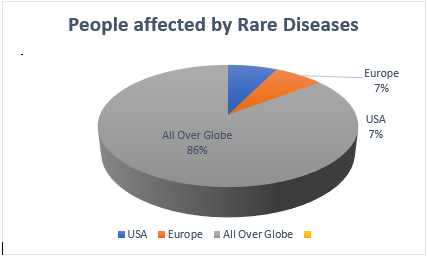
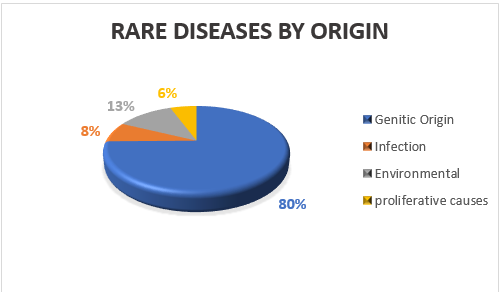
In 2018, Orphan Drug sales were of the order of 93 billion. Orphan Drugs represented 35% of the industry’s new drug approvals. The genetic diseases are subdivided by therapeutic area, which was leading the global market in the past will show similar traction in the coming next eight years. This segment is anticipated to be valued at US$ 56,241 by the end of 2025. According to Statistics of MRC, the Global Orphan Drug market is estimated at $145.89 million in 2018 and is expected to reach $265.63 million by 2022 growing at a CAGR of 10.5% from 2018 to 2022.
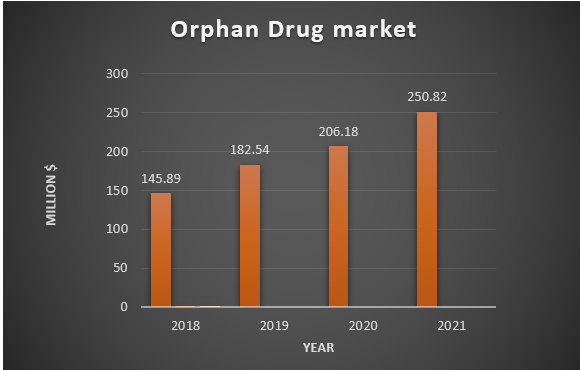
Major Associations Associated with Rare Diseases Research
Alzheimer's disease Organizations
Ann & Robert H. Lurie Children’s Hospital
Birmingham children’s Hospital
Boston Children’s Hospital
Canadian Organization for Rare Diseases
Chicago Rare Disease Foundation
Children’s hospital of Pittsburgh
Comer Children’s Hospital – University of Chicago
Cystic Fibrosis Foundation
European Union Committee of Experts on Rare Diseases
EURORDIS Rare Diseases Europe
EveryLife Foundation for Rare Diseases
Global Genes Allies in Rare Diseases
Guardian Hands Foundation
Hospitals Associated with Rare Diseases Research
IRDR Intractable & Rare Diseases Research
Japan Patient Association
Multiple Myeloma Research Foundation
National Alliances for Rare Diseases
National Institute of Health (NIH)
National Organization for Rare Diseases
NDC Medicine
Organization for Rare Diseases India (ORDI)
Orphan Europe
Philippine Society for Orphan Disorders
Rare Disease UK
Rare Diseases or Syndromes and Clinical Societies
Rare Diseases Foundation, Iran
Rare Diseases Patient Association Funding
Rare Diseases South Africa
Rare Diseases Translational Research Collaboration
Rare Disorders Society Singapore
RARE Foundation Alliance
Royal Society of Medicine
Short Bowel Syndrome Foundation
Students4RareDiseases
The Asia-Pacific Alliance of Rare Disease Organisations
The Boler-Parseghian Center for Rare & Neglected Diseases
The Boler-Parseghian Center for Rare & Neglected Diseases
The Children’s Hospital of Philadelphia
The Every Life Foundation for Rare Diseases
The Genetic and Rare Disorders Organization
The Greek Alliance for Rare Diseases
The Manton Center for Orphan Disease Research
U.S. Food and Drug Administration
UCLA Health
US hospital for Rare Disease Research
Major Universities Associated with Rare Diseases Research
Anahuac University North Campus, Mexico
Australian National University, Australia
Benha University, Egypt
Birmingham City University, UK
Center for Clinical Pharmacology, Belgium
Center for Rare Neurological Diseases, USA
Charles Darwin University Casoria Australia
Columbia University Medical Center, United States
Columbia University, USA
Curtin University Bentley, Australia
Dar Al Uloom University, Saudi Arabia
Duke University, USA
Emory University, USA
GMEC, The Global Medical Excellence Cluster
Guangzhou Medical University, China
Harvard University, United States
Harvard University, USA
Imperial College London, United Kingdom
Infection Control University
Iqbal Chest Centre, Bangladesh
John Hopkins University, USA
Johns Hopkins University, United States
Karolinska University, Sweden
Kindai University, Japan
King Saud Bin Abdulaziz University, Saudi Arabia
King's College London, UK
Kumamoto University, Japan
Linnaeus University, Sweden
Macquarie University, Australia
Mayo Clinic College of Medicine, USA
McGill university Montréal, Canada
McMaster University, Canada
Medi7 Bentleigh, Australia
Murdoch University Murdoch, Australia
National Institutes of Health, USA
Newcastle University, Australia
Northwestern University, Qatar
Osaka University, Japan
Oxford University, UK
Philip Morris International R&D, Switzerland
Pompeu Fabra University, Spain
Queen Mary University, UK
Radboud University Medical Center, Netherlands
Rare Genomics Institute, USA
Research Institute of Hospital del Mar, Spain
Rizzoli Orthopedic Institute, Italy
Samsung Medical Center, South Korea
St George’s University of London, UK
St. George Hospital, Australia
Stanford University, USA
Tasmanian Health Service, Australia
The Chest & Heart Association of Bangladesh, Bangladesh
The Fourth Hospital of Harbin Medical University, China
The Jikei University School of Medicine, Japan
The Third Affiliated Hospital of Guangzhou Medical University, China
The University of Newcastle, Australia
Tufts university, United States
United Hospital, Bangladesh
University College London, UK
University of British Columbia, Canada
University of Buffalo, United States
University of California Los Angeles, United States
University of California, USA
University of Cambridge, USA
University of Canberra Bruce, Australia
University of Celiac Disease Center, USA
University of Chicago Medicine, USA
University of Colorado, USA
University of Groningen, Netherlands
University of Lincoln, UK
University of London Imperial College of Science Technology and Medicine, UK
University of Maastricht, Netherlands
University of Maryland Medical Center, Australia
University of Maryland Medical Center, United States
University of Melbourne, Australia
University of Minnesota, United States
University of Newcastle, Australia
University of Pennsylvania, USA
University of Pittsburgh Study
University of Pittsburgh, USA
University of Queensland, Australia
University of Tasmania, Australia
University of Toronto, Canada
University of Valencia, Spain
University of Washington, USA
University of Zurich, Switzerland
University-of-the-sunshine-coast, Australia
Weill Cornell Medical College, Qatar
Wits University, South Africa
Yale University School of Medicine, USA
Yonsei University, South Korea
Major Companies Associated with Rare Diseases and Orphan Drugs
700thespians Limited, UK
Abbott Laboratories, UK
Actavis, USA
Aegerion Pharmaceuticals, Japan
Alexion Pharmaceuticals Inc, Switzerland
Almirall, Spain
Amgen, USA
Amicus Therapeutics, USA
Amphastar Pharmaceuticals, Inc
Araim Pharmaceuticals
Astellas Pharma US
AstraZeneca, Switzerland
AstraZeneca, UK
Baxter International Deerfield
Bayer HealthCare, Germany
Bayer, Germany
Beacon Pharmaceuticals, Bangladesh
Biotie Therapies Corp, Finland
Bioxyne Limited, Australia
Boehringer Ingelheim, Germany
Celgene, Switzerland
Centrapharm Ltd, UK
Chiesi Pharmaceutical, Italy
Clalit Health Service, Israel
Cohero Health, USA
Daiichi Sankyo Europe, Germany
Daiichi Sankyo, Japan
Dohmen Life Science
Elma Reseach, UK
European Medicines Agency
Focus Scientific Research Center (FSRC), phamax, India
Forest Laboratories, USA
Gecko Health, USA
Generics (UK) Ltd, UK
Genus Oncology Vernon Hills, USA
Genzyme, USA
Gilead sciences, USA
GlaxoSmithKline, UK
Global Data, UK
Gsk, London
Hormosan Pharma, Germany
Hormosan Pharma, Germany
Ikris Pharma Network Pvt Ltd, India
Ikris Pharma Network Pvt Ltd, India
Kissei Pharmaceutical Co., Ltd, Japan
Kyowa Hakko Kirin Co. Ltd, Japan
Lallemand Pharma, Switzerland
Life Arc, UK
Marathon Pharmaceuticals
Merck & Co, USA
Millennium Pharmaceuticals
Napp Pharmaceuticals Ltd, UK
Novartis, Switzerland
NPS Pharmaceuticals
Octapharma, USA
Onyx Pharmaceuticals, USA
Otsuka Holdings Co., Ltd, Japan
Panmira Pharmaceuticals, LLC, USA
Pearl Therapeutics, Inc
Pfizer, USA
PharmaMar, USA
Prosensa, Netherlands
PT Boehringer Ingelheim, Indonesia
Queensland Respiratory Laboratory Pty. Ltd, Australia
Ranbaxy Laboratories Limited
Raptor Therapeutics
Roche, Switzerland
Samsung Medical Center, South Korea
Sanofi, France
Sarepta Therapeutics, USA
Sigma-Tau Pharmaceuticals, Italy
Sunovion Pharmaceuticals, USA
Swedish Orphan Biovitrum AB, Sweden
Takeda, Japan
TriStem Corp Ltd, UK
Vertex Pharmaceuticals, USA
ViroPharma
ViroPharma, USA
Visionary Pharmaceuticals, Inc, USA
Yungjin Pharm Ind. Co., Ltd, South Korea
Summary
Rare Diseases are that affects a small percentage of the population all over the world. An Orphan Disease is Rare Diseases with a lack of a market large enough to gain support and sources for discovering treatments for it, with advances to research in orphan diseases advantageous conditions to creating and selling such treatments. Rare diseases are genetic and are present throughout the entire life of individual suffering, even if symptoms do not immediately appear. Many Rare Diseases seems to appear early in life, and about 30% of children affecting with rare pediatric diseases will die before getting 5 year old. Rare Diseases are generally genetic and so they chronic. It is estimates that at least 80% of them have identified genetic origins. Other Rare Diseases are the result of infections and allergies or it may be due to degenerative and proliferative causes and discovering the well-advanced treatments in Rare Diseases and Orphan Drugs.
Conference Highlights
- Rare Diseases in Neurology
- Rare Mental and Behavioral Disorders
- Rare Pediatric Diseases
- Immunological Rare Diseases
- Rare Diseases in Nephrology
- Rare Dermatological Disorders
- Rare Oncology
- Rare Diseases of Lymphatic System
- Rare Nutritional and Metabolic Diseases
- Rare Gynecological and Obstetrical Diseases
- Treatment and Advanced Therapies for Rare Diseases
- Orphan Drugs Potentiality
- Clinical Case Studies on Rare Diseases
- Rare Diseases in Bloodstream
- Rare Diseases of Endocrine System
- Rare Musculoskeletal Diseases
- Rare Hereditary Diseases
- Economic aspects of Rare Diseases and Orphan Drugs
- Orphan Medicinal Products
- Orphan Drugs strategies and developmental trends
To share your views and research, please click here to register for the Conference.
To Collaborate Scientific Professionals around the World
| Conference Date | June 17-18, 2019 | ||
| Sponsors & Exhibitors |
|
||
| Speaker Opportunity Closed | Day 1 | ||
| Poster Opportunity Closed | Click Here to View | ||
Useful Links
Special Issues
All accepted abstracts will be published in respective Our International Journals.
- Journal of Clinical Infectious Diseases & Practice
- Journal of Clinical Trials
- Journal of Neuroinfectious Diseases
Abstracts will be provided with Digital Object Identifier by




